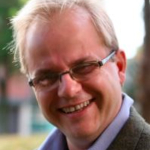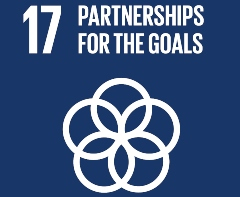
Embedding the use of historical analysis within the humanitarian sector
Humanitarian organisations typically have limited capacity for in-house research and policy analysis, meaning there has been a lack of critical humanitarian histories informing future strategy. Research at The University of Manchester has led to a change in the way strategy and training is designed and delivered in some of the largest humanitarian organisations in the world.
This work delivers on the UN Sustainable Development Goal 17: strengthen the means of implementation and revitalise the global partnership for sustainable development.
Key facts
- Embedded historical analysis into the strategies of two leading international NGOs
- Awarded the 2017 International Studies Association Ethics Section Book Award
- Created specialist training courses for NGOs on critical analysis
As the humanitarian sector develops and professionalises at pace, historical perspectives provide a valuable addition to the critical questioning of humanitarian practitioners and policymakers.
Research led by the Humanitarian and Conflict Response Institute (HCRI) has produced one of the first historical analyses of the development of the humanitarian aid sector and its practices.
Looking to the future by analysing the past
Professor Bertrand Taithe, with colleagues from HCRI and the Department of History, focused on tracking the origins of humanitarianism, the professionalisation of the sector, and how humanitarianism has grown as an applied practice.
The research has led to the inclusion of historical reflection within strategic analysis, decision-making and training in the humanitarian sector.
The work engages with current practices and invites humanitarians to think historically within their work. An important element has been knowledge co-production, with researchers involving humanitarian practitioners and the communities they work in. This has created a growing awareness of the importance of history, archives and the critical analysis of ideas about the past in humanitarian decision-making processes.
This research has been able to contribute to many important insights for the sector including revealing the diverse origins of the humanitarian sector; questioning institutional narratives that present humanitarianism as timeless and apolitical; furthering understanding of the development of professional practices such as advocacy, public relationships and accountability within the humanitarian sector; and historicising reform agendas and processes within and around the humanitarian sector.
The global impact
Globally, these findings and recommendations have been embedded in two of the largest Nobel Prize-winning humanitarian organisations: Médecins Sans Frontières (MSF) and Save the Children (SCF).
This work has also informed humanitarian policy think tanks: Centre de Réflexion sur l’Action et les Savoirs Humanitaires, (CRASH) for MSF and Humanitarian Affairs Team for SCF. They now commission research that employs historical methods to inform programmes and reform decision-making and policy framing.
Outside of organisational structures, this work contributed to major forums such as the World Humanitarian Summit and Active Learning Network for Accountability and Performance (ALNAP), the largest global learning network of NGOs, UN agencies, members of the Red Cross/Crescent Movement, donors, academics and consultants.
Manchester's expertise in using research to inform humanitarian practice has also helped the University secure £1.5million in funding for the Researching the Impact of Attacks on Healthcare international research consortium.


